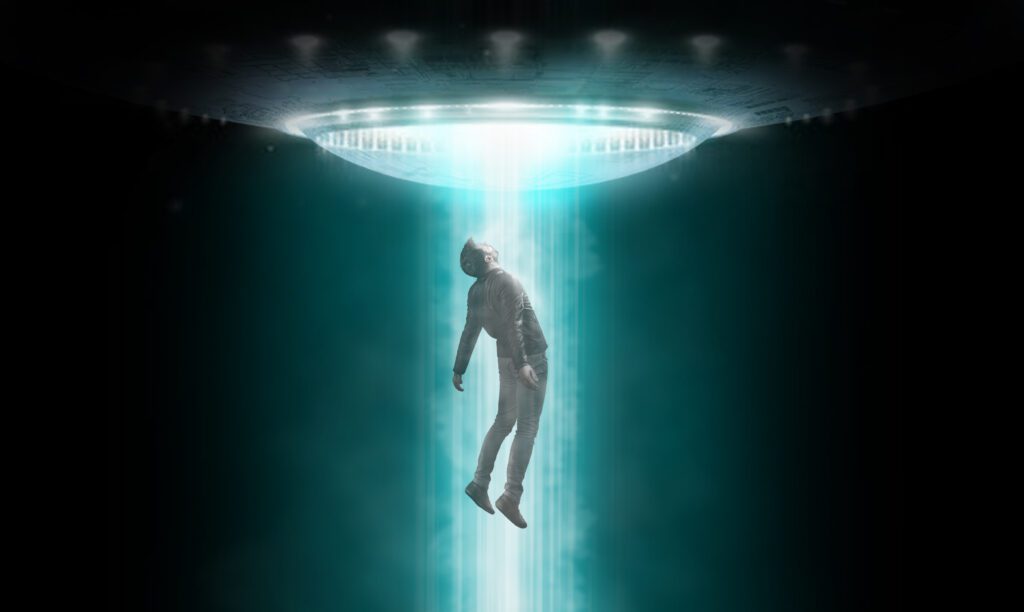Blog
Alien Abduction Day: Exploring the Unexplained
“Alien Abduction Day: A celebration of believers in extraterrestrial encounters on March 20th. Explore the fascinating history and impact of these claims.”

Each year, on March 20th, an intriguing holiday known as Alien Abduction Day captivates the imagination of believers and skeptics alike. While its exact origins and the reasons behind its chosen date remain shrouded in mystery, the Alien Abduction Day festival in Toronto played a pivotal role in popularizing this unique commemoration in 2008. Despite the fact that a substantial number of people claim to have witnessed encounters with extraterrestrial beings, the existence of aliens is frequently dismissed as a joke by those who remain unconvinced. On Alien Abduction Day, however, believers take center stage, with the focus squarely on those who embrace the possibility of life beyond our planet. Join us as we delve into the intriguing history of Alien Abduction Day.
The Origins of Aliens and UFOs
Aliens, as they are commonly referred to, are believed to be living beings from realms beyond Earth. Many speculate that these extraterrestrial visitors transport themselves using Unidentified Flying Objects (UFOs). The first recorded instance of a UFO sighting occurred on March 1, 1639, chronicled in the diary of John Winthrop. According to Winthrop, James Everell and two others in a boat witnessed a great light in the night sky. This enigmatic light stood still before erupting into flames and transforming into the shape of a swine as it moved. Moreover, the witnesses reported that the light darted back and forth between their village and a nearby settlement, covering a distance of two miles in mere moments. Strangely, after the sighting, the individuals found themselves in a section of the river they had no recollection of rowing to. In today’s context, this incident could potentially be considered the first documented case of alien abduction.
The Rise of Alien Abduction Stories
While speculation about the existence of extraterrestrial life has endured throughout history, it was not until the 1960s that the phenomenon of alien abductions came to the forefront. One of the earliest and most widely publicized accounts was the “Hill Abduction,” a claimed abduction experienced by Barney and Betty Hill. Allegedly taken by aliens from September 19th to 20th, 1961, in rural New Hampshire, the Hills’ extraordinary encounter caught the attention of the public. Their story was eventually adapted into the book “The Interrupted Journey,” published in 1966, which became a bestseller. This captivating narrative served as a catalyst, sparking widespread fascination with and discourse about the possibility of extraterrestrial abductions.
The Significance of Alien Abduction Day
Alien Abduction Day shines a spotlight on individuals who firmly believe in the phenomenon of alien encounters. Whether or not one accepts these claims as genuine, it is essential to recognize the profound impact that they have on those who come forward. According to UFO experts, the psychological and emotional effects experienced by individuals who believe they have been abducted by aliens can be substantial, regardless of the veracity of their claims.
On Alien Abduction Day, believers and enthusiasts gather to celebrate and discuss their experiences and theories surrounding alien contact. This observance fosters an environment of acceptance and understanding, allowing individuals to share their perspectives without fear of ridicule or dismissal. Moreover, it encourages open-mindedness and curiosity, acknowledging the vast diversity of human experiences and beliefs.
Alien Abduction Day, celebrated annually on March 20th, invites us to ponder the mysteries beyond Earth’s borders and explore the vast possibilities of extraterrestrial encounters. Whether one remains a skeptic or chooses to embrace the enigma, this day is a testament to the enduring allure of the unknown.
Alein Abduction (wikipedia)
Alien abduction (also called abduction phenomenon, alien abduction syndrome, or UFO abduction) refers to the phenomenon of people reporting what they believe to be the real experience of being kidnapped by extraterrestrial beings and subjected to physical and psychological experimentation. People claiming to have been abducted are usually called “abductees” or “experiencers”. Most scientists and mental health professionals explain these experiences by factors such as suggestibility (e.g. false memory syndrome), sleep paralysis, deception, and psychopathology. Skeptic Robert Sheaffer sees similarity between some of the aliens described by abductees and those depicted in science fiction films, in particular Invaders From Mars (1953).
Typical claims involve forced medical examinations that emphasize the subject’s reproductive systems. Abductees sometimes claim to have been warned against environmental abuses and the dangers of nuclear weapons or to have engaged in interspecies breeding. The contents of the abduction narrative often seem to vary with the home culture of the alleged abductee. Unidentified flying objects (UFOs), alien abduction, and mind control plots can also be part of radical political apocalyptic and millenarian narratives.
Reports of the abduction phenomenon have been made all around the world, but are most common in English-speaking countries, especially the United States. The first alleged alien abduction claim to be widely publicized was the Betty and Barney Hill abduction in 1961. UFO abduction claims have declined since their initial surge in the mid-1970s, and alien abduction narratives have found less popularity in mainstream media. Skeptic Michael Shermer proposed that the ubiquity of camera phones increases the burden of evidence for such claims and may be a cause for their decline.
